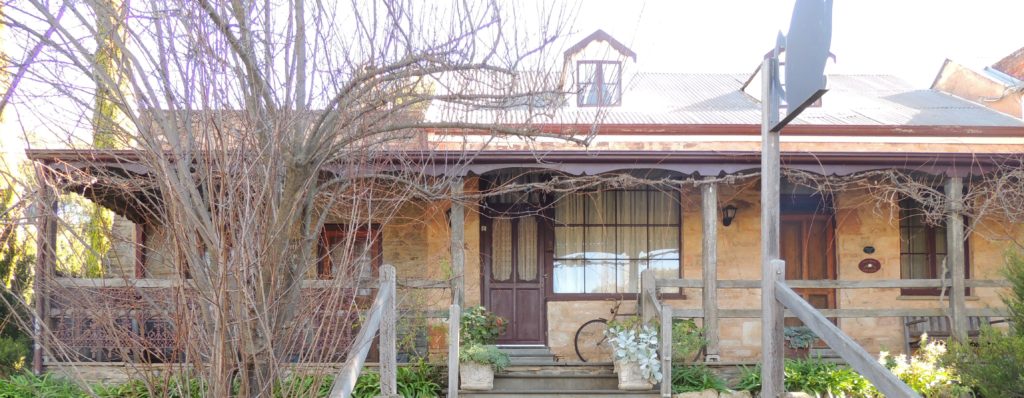
When travelling on a touring holiday, it's a good idea to take note of those brown signposts that point to tourist attractions, and it's exactly what we did when driving through the Clare Valley area of South Australia recently. Having already passed a sign to the historic town of Mintaro before we realised what we'd missed, we were pleased to see another and quickly turned off the main road.
We had no idea what to expect, and so were delighted to arrive in this sweet, almost untouched-by-modern-times village. After parking the car, we wrapped up (it was a bit nippy) and wandered along the main street admiring Mintaro's old buildings, trees and gardens.
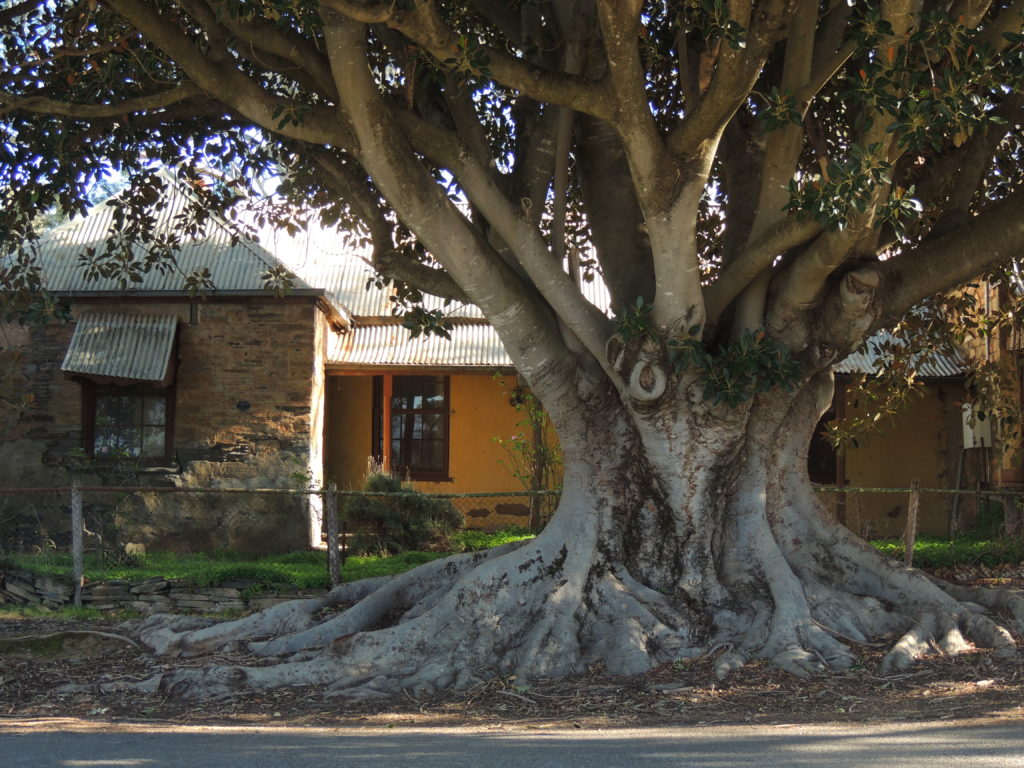
Mintaro, present population 188, dates from about 1849. It was once a staging post on the journey from Burra Mines to Port Wakefield. At Burra, copper had been discovered, and it was carried by bullock teams to the port for shipment overseas. Mintaro enjoyed prosperity until it was decided that the copper should be taken to port by a different route. I wonder if the Ficus tree in the photo above dates from that time: it certainly seems big enough!
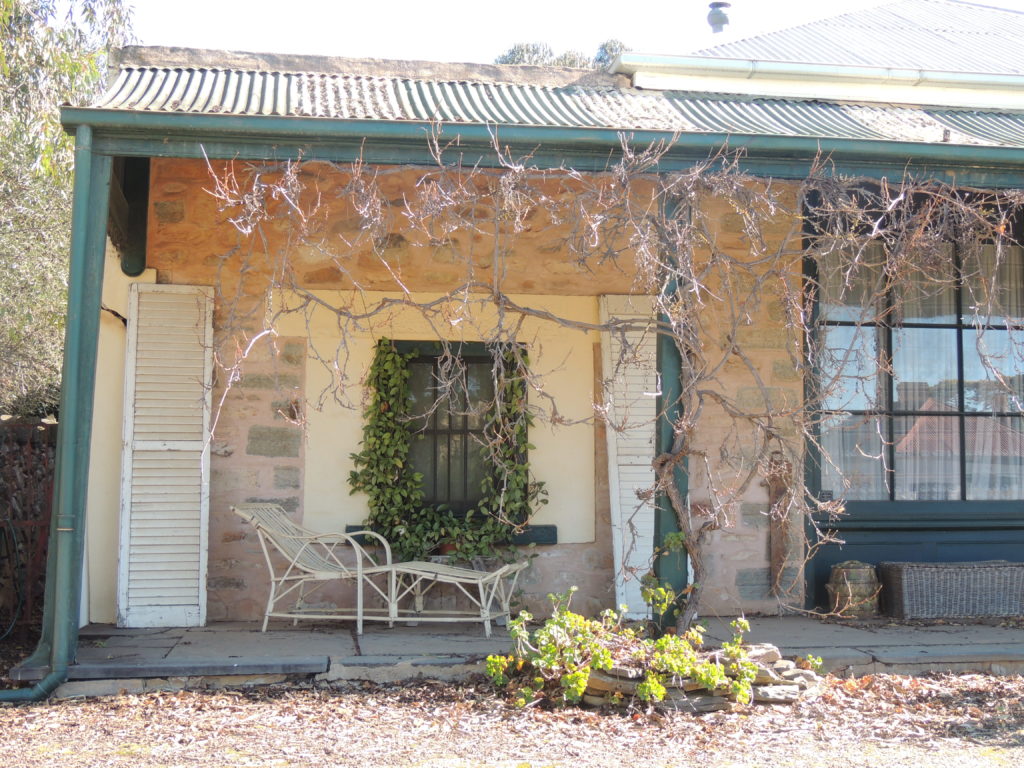
In later years, Mintaro became better known for its slate. Mintaro Slate Quarry is thought to be the oldest continuously operated quarry in South Australia, possibly in the whole of Australia. As well, the countryside around this area is famous for wineries and farming. The rolling hills were luxuriantly green when we were there, the vineyards with their neatly tiered rows looked prosperous and little Mintaro was a charming break on our journey south.
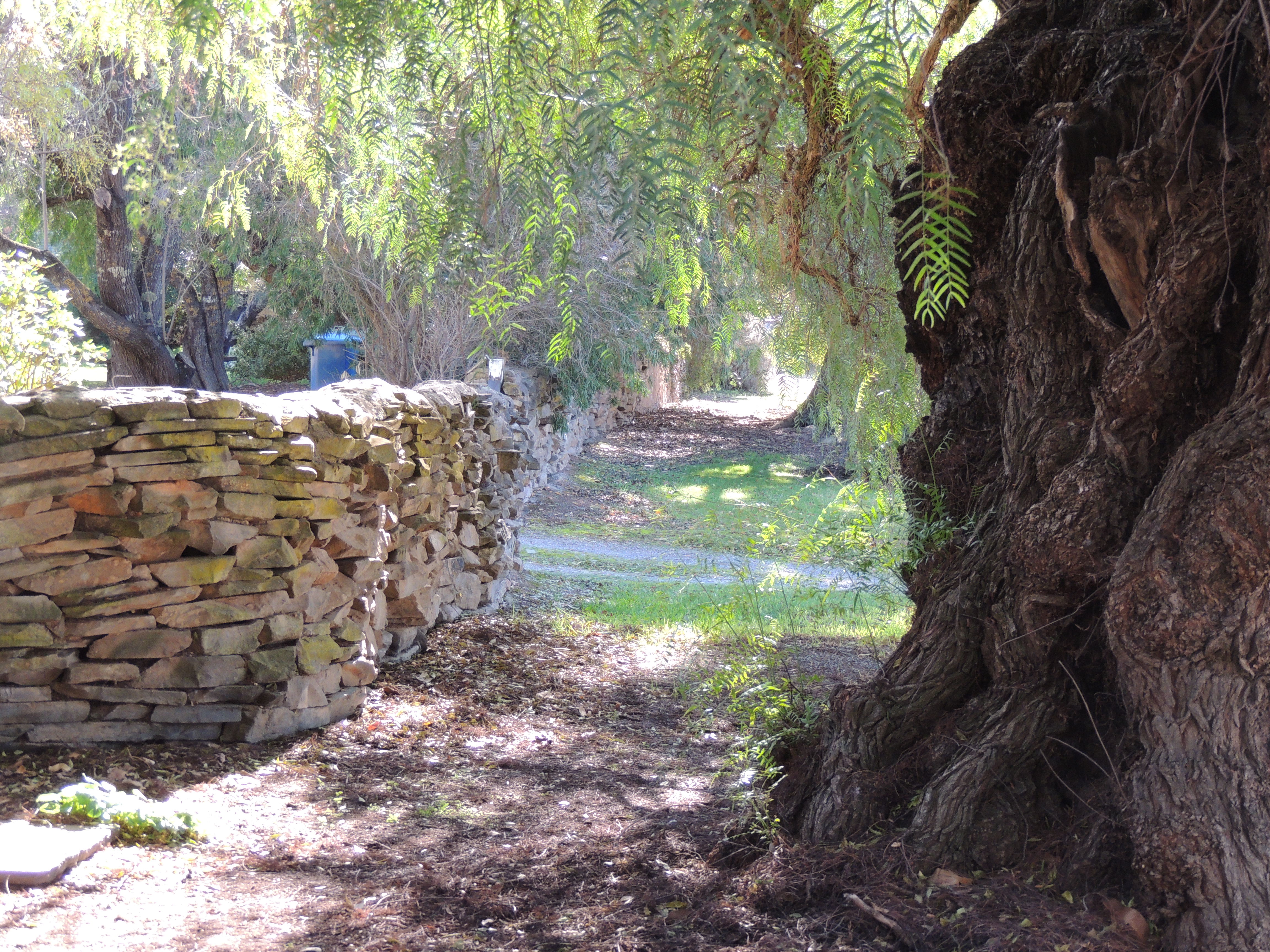
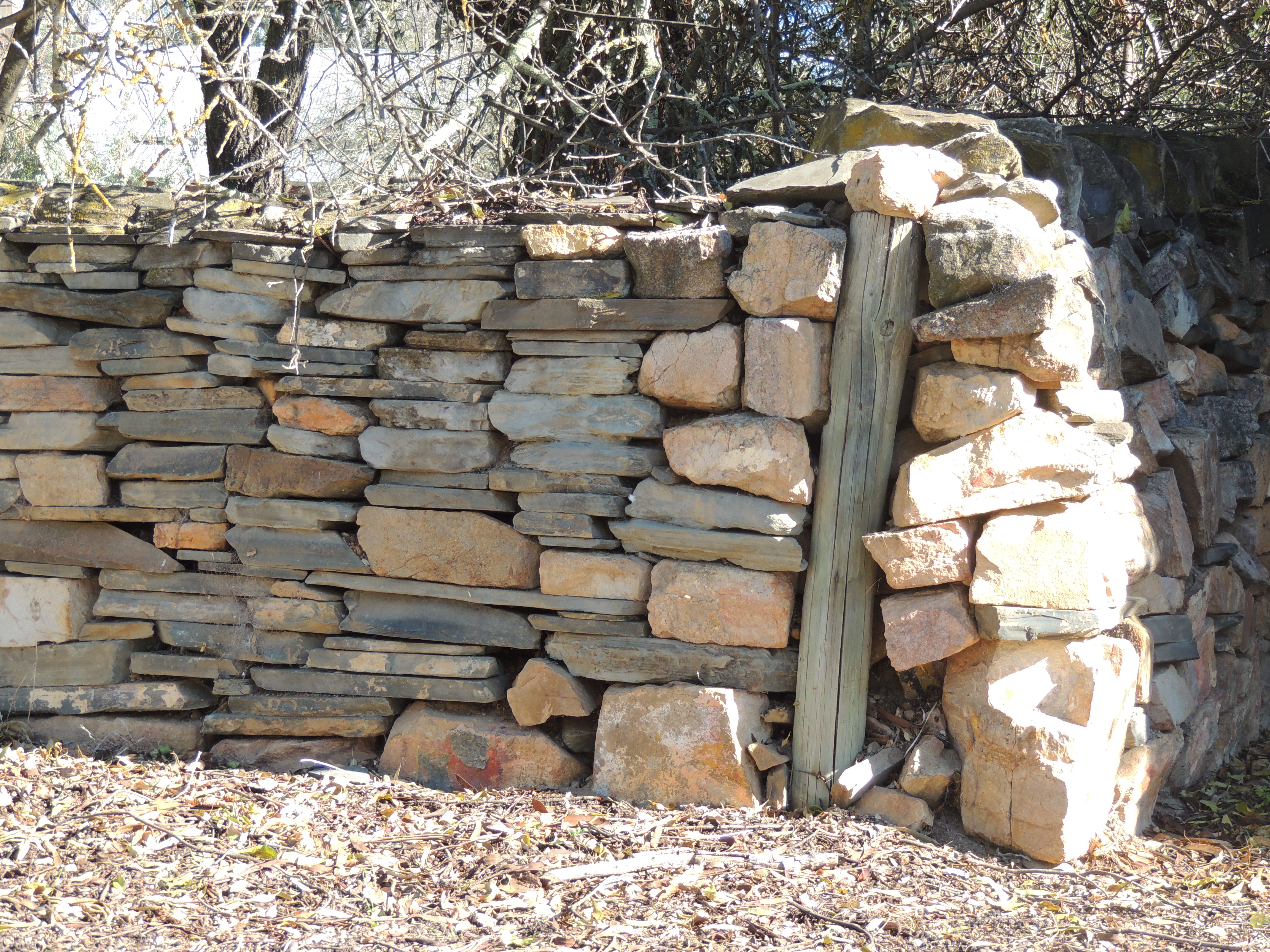
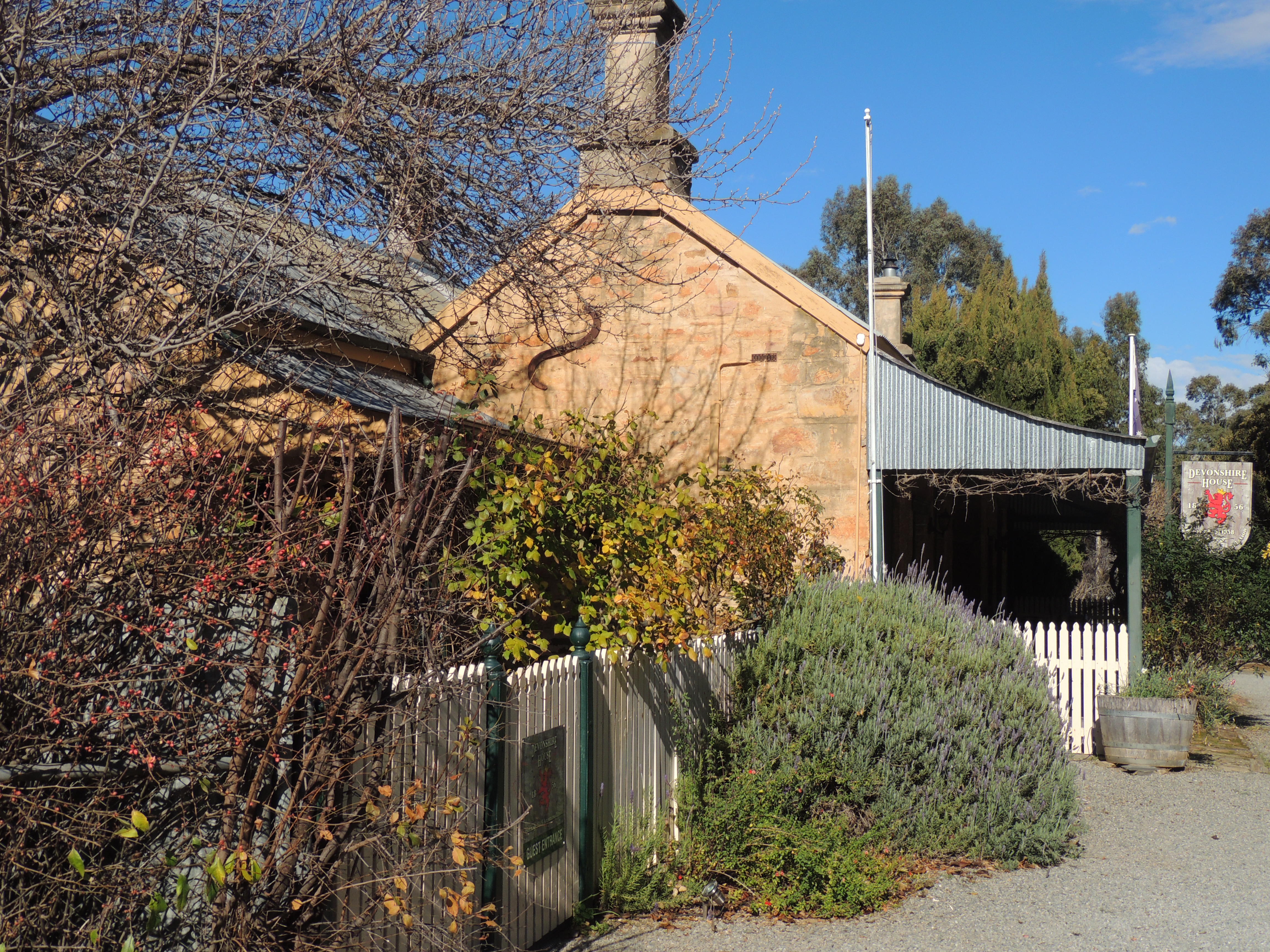
The photos, by the way, were taken by Mr MG, who's a better photographer than I am. He takes arty shots.
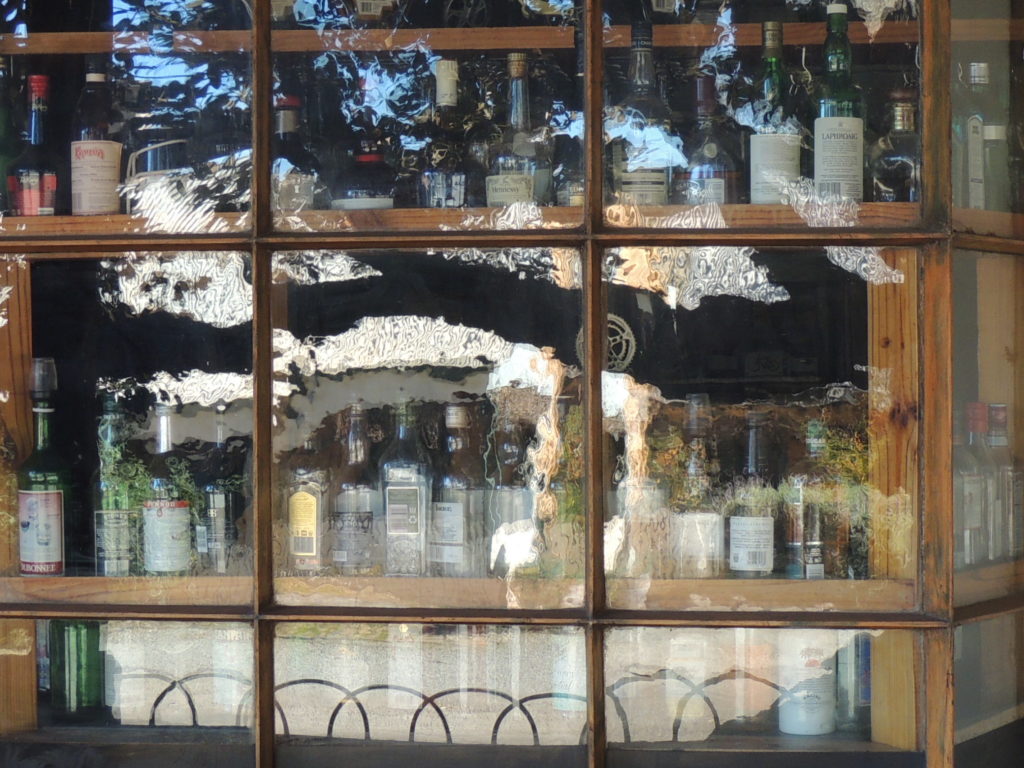
And closeups.
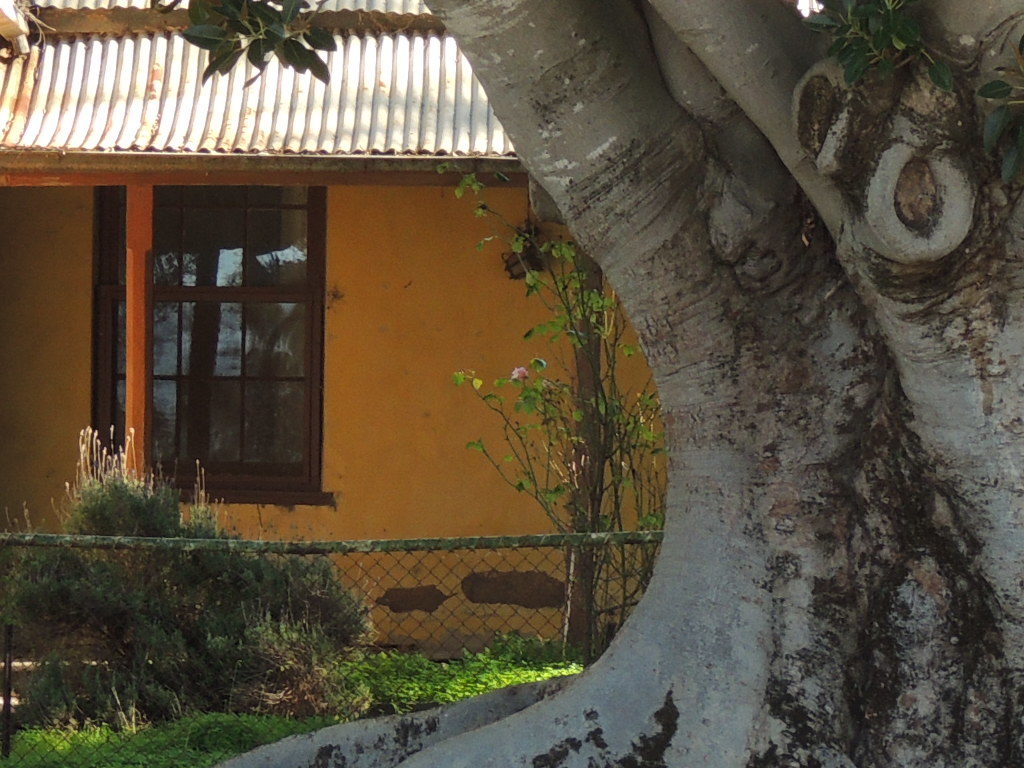
We enjoyed a coffee and a chat at Reilley's Restaurant where there was a jolly group of locals who knew we were not from anywhere nearby. 'You're not pronouncing the name correctly,' said one man. 'It's Mint-air-o.' Who would have thought?
What a delightful and interesting find. I loved wandering around this old time village with you Jane. When we were travelling full time we never missed a chance to follow those brown signs and found many unsung treasures.
Thanks Pauline, it was a lovely place. Didn’t quite spend long enough as we were on the way to Adelaide and there was lots more to see. Countryside was just gorgeous around there, especially after all the drought-stricken countryside we’d travelled through.
This looks like a real gem. Lovely colours and textures, and fab photos Mr MG! You have captured a beautiful calm atmosphere.
Thanks Ali, I’ll tell him!
Lovely Jane, very interesting as usual.x
Thanks, Marg.
What an amazing tree and quaint little town. I love finding off-the-beat towns that seem to go unnoticed by the rest of the world. Such places of solitude are a sweet treat.
It was such a great find, Cindy. I could have stayed there for a couple of days, easily.
How delightful, Jane. That Ficus is really something. And the dry stone walls – just wonderful. Mont- air – o. Well, I would never have guessed.
It was such a pleasant surprise, Tracy.
Don’t you love it when the locals correct your pronunciation! I got told off when asking for the road to the Bowgie Inn. Cornwall has some interesting place names.
I’ve had some experience of place names in the UK, Jude. I find them fascinating, but it’s very easy to fall into the mispronunciation trap.
Very quaint. It could almost be England!
Indeed, Jessica, but nowhere near as old! A great-aunt of mine, long gone now, lived in a house in Shipton-under Wychwood that was built in 1492!
That first photo of the house with a bicycle propped up against it says it all – it does seem like something out of the distant past. Passing through the middle of California recently, we saw plenty of small outposts but nothing as charming as Mintaro.
This village was completely charming Kris..a bit different from my earlier Silverton post!
What a lovely little village! That old Ficus tree looks amazing!
There was a number of ancient trees, Kristah, some peppercorns with equally gnarled and aged trunks caught my eye as well. What stories they could tell.
What an incredible tree! Thanks for taking us on your tour with you, lovely. 🙂
Thanks Gill, glad you enjoyed it.
What a lovely discovery and a nice place to spend a couple of hours. There are so many quaint little towns and if we stopped at them all we’d never get to our intended destination. Lovely photos, thank you Mr MG.
That’s true, Carol. This stop was all the better for being serendipitous. Glad you liked the photos!
As I was appreciating Mr MG’s pictures , I also loved the thoughts that you shared . They both brought me back to what’s my desire for reality . Thanks
Thanks, Jean, I’m glad you enjoyed the photos.
That gentle brown colour of the buildings is so typical of the towns north of Adelaide. There is so much variation in stone buildings across Australia and you photos are such a pleasure to see.
I didn’t occur to me, but you’re right about the gentle brown colour. Thank you for your comment, John.